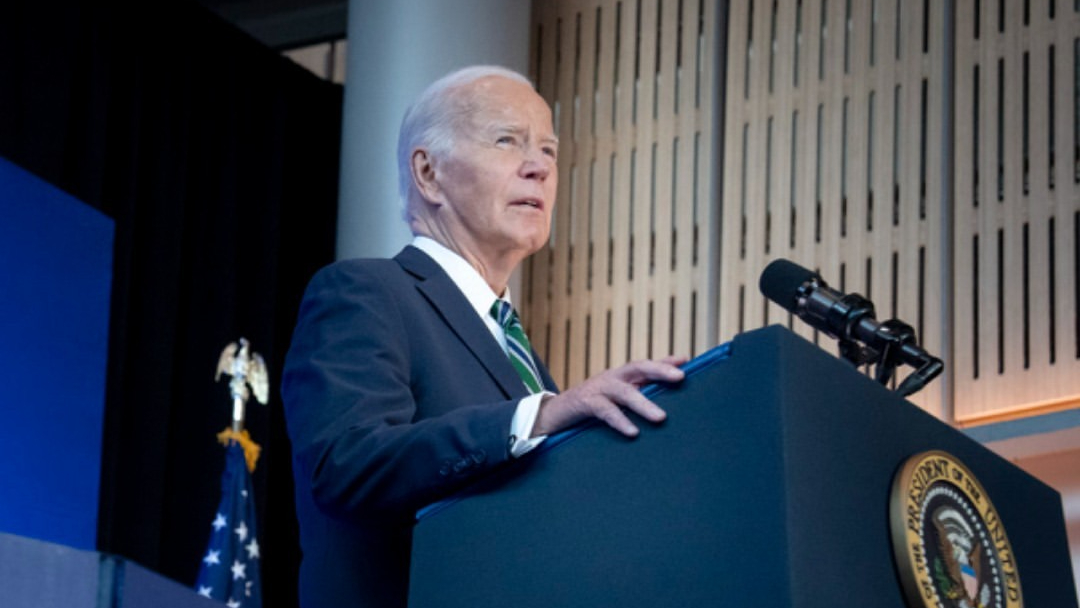Biden Blocks Nippon Steel’s $14.9 Billion Bid for US Steel, Citing National Security Concerns
In a move resonating across the industrial and political landscape, President Joe Biden has denied Nippon Steel’s $14.9 billion proposal to acquire US Steel, reinforcing his administration’s commitment to protecting domestic industries crucial to national security. The decision not only halts one of the largest proposed foreign acquisitions in recent years but also sends a strong message about the importance of maintaining American ownership in critical sectors.
“US Steel will remain a proud American company—American-owned, American-operated, by American union steelworkers—the best in the world,” Biden declared, addressing the pivotal role steel plays in America’s infrastructure, defense, and supply chains. The decision came after a rigorous review by the Committee on Foreign Investment in the United States (CFIUS), which flagged significant security risks.
US Steel’s Struggles: A Company at a Crossroads
The decision to block Nippon Steel’s bid comes at a challenging time for US Steel. Once a titan of American industry, the company has faced mounting financial pressures and a rapidly evolving global steel market dominated by competitors from China and other low-cost producers.
The nearly $3 billion in investment that Nippon Steel pledged was seen by many as a potential lifeline. US Steel argued that the acquisition would not only secure the company's financial future but also enhance its competitiveness and production capacity. Nippon Steel, Japan's largest steelmaker, emphasized that the partnership would bring advanced technologies and efficiencies, bolstering the American steel giant’s global standing.
Without this financial injection, US Steel has warned of potential shutdowns of key facilities, which could lead to significant job losses in communities reliant on steel production. The ripple effects could extend to industries ranging from construction to automotive manufacturing, where domestic steel remains a cornerstone.
National Security Takes Center Stage
Biden’s decision highlights the increasing overlap between economic policy and national security in today’s geopolitical climate. Steel is not just a commodity—it’s the backbone of critical industries, including defense, transportation, and infrastructure.
CFIUS raised alarms about foreign ownership of one of America’s largest steel producers, warning that it could compromise the nation’s ability to secure a steady supply of steel for vital projects. While Nippon Steel is based in Japan, a close U.S. ally, the committee underscored that foreign ownership could expose sensitive supply chains to vulnerabilities, particularly amid growing tensions with nations like China.
“Without domestic steel production and domestic steelworkers, our nation is less strong and less secure,” Biden stated, reflecting a philosophy that has gained traction among both Democratic and Republican leaders.
The Political Battleground: Pennsylvania and Union Support
The proposed sale of US Steel also became a political flashpoint, particularly in Pennsylvania, where the company is headquartered. With both Biden and his likely 2024 rival, Donald Trump, vying for support from union workers in this critical swing state, the deal’s fate became intertwined with electoral politics.
Unionized steelworkers voiced strong opposition to the deal, accusing US Steel’s leadership of prioritizing shareholder gains over the welfare of employees and the long-term viability of the company. The United Steelworkers union, representing thousands of workers, applauded Biden’s decision, calling it a victory for American workers and national security.
Trump, known for his staunch "America First" trade policies, also condemned the deal. In a rare convergence, both leaders emphasized the importance of keeping US Steel under domestic ownership, reflecting a shared recognition of the political and strategic significance of the steel industry.
CFIUS and the Path to the Decision
The Committee on Foreign Investment in the United States, an inter-agency body tasked with evaluating the national security implications of foreign investments, played a decisive role in shaping Biden’s decision. After an initial review flagged significant risks, CFIUS extended its evaluation by 90 days, giving proponents of the deal hope that the sale might eventually receive approval.
However, CFIUS’s final report left little room for doubt. In a detailed 29-page assessment, the committee outlined how foreign control of US Steel could jeopardize supplies essential for critical infrastructure projects, defense needs, and economic stability.
Biden ultimately acted on the committee’s recommendation, asserting that protecting domestic steel production aligns with broader national security priorities. “This decision reflects my unwavering commitment to employ all available presidential authorities to safeguard U.S. national security,” he stated.
Economic and Market Impact
The rejection of Nippon Steel’s bid has already sent shockwaves through financial markets. Following the announcement, US Steel’s shares fell by 7%, reflecting investor concerns about the company’s ability to navigate its financial challenges independently.
The broader implications of Biden’s decision extend beyond the steel industry. The move signals a more protectionist stance on foreign investments in sectors deemed critical to national security. Even allies like Japan, with a strong history of economic cooperation, are not immune to scrutiny when it comes to safeguarding America’s industrial base.
Nippon Steel, for its part, argued that its investment would have strengthened U.S. steel production and positioned the company to better compete against Chinese producers, which continue to flood global markets with subsidized steel. The rejection underscores the Biden administration’s belief that maintaining domestic ownership is a more secure path forward.
Related: Biden to Decide on $15B Nippon Steel Acquisition of U.S. Steel
Steel and the Future of American Industry
The decision to block Nippon Steel’s acquisition of US Steel raises important questions about the future of the American steel industry. How can US Steel remain competitive without the infusion of foreign capital? What role will government policies play in supporting domestic industries struggling to keep pace with global competitors?
Biden’s decision reflects a broader effort to reframe industrial policy in the United States. By emphasizing the intersection of economic strength and national security, the administration is betting on the long-term benefits of keeping critical industries under American control.
Yet, the path forward is far from clear. US Steel must now find alternative sources of capital or risk further erosion of its market position. At the same time, the decision may discourage foreign investment in other industries, potentially complicating efforts to attract capital for domestic growth.
A Defining Moment for U.S. Economic Policy
Biden’s rejection of Nippon Steel’s $14.9 billion bid for US Steel represents a defining moment in U.S. economic policy. It highlights a growing recognition that the health of critical domestic industries cannot be divorced from national security considerations.
As the steel industry grapples with global competition, technological change, and economic pressures, the Biden administration has drawn a clear line: protecting American workers and industries comes first.
Whether this approach will secure a brighter future for US Steel and the broader U.S. steel industry remains to be seen, but one thing is certain—this decision will shape the conversation about trade, national security, and industrial policy for years to come.









